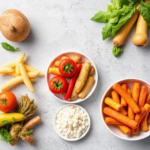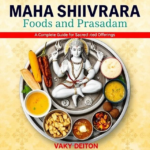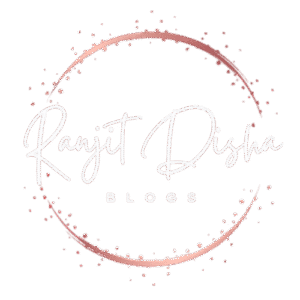Best Foods for Rainy Season: Stay Healthy, Warm, and Energized During Monsoon
The monsoon season brings a refreshing break from the summer heat, filling the air with the scent of rain-soaked soil and lush greenery. While the rains are beautiful, they also come with their share of health concerns—humidity, water-borne infections, digestive issues, and weakened immunity. That’s why your diet during the rainy season plays a crucial role in maintaining health, energy, and immunity.
In this article, we will explore the best foods for the rainy season, dietary do’s and don’ts, immunity-boosting ingredients, easy recipes, and tips to enjoy the monsoon while staying fit and illness-free.
Why Your Diet Matters During the Rainy Season
During monsoon, the moisture in the environment increases the growth of bacteria and viruses. The digestive system also becomes sluggish due to humidity. This makes us prone to cold, flu, stomach infections, skin allergies, and joint pains.
Eating the right foods in the rainy season can:
Boost your immunity
Improve digestion
Keep you warm and energetic
Prevent seasonal infections
Reduce inflammation
Let’s take a look at what to include and avoid in your monsoon food list.
Top 15 Best Foods to Eat During Rainy Season
1. Hot Soups (Vegetable / Chicken / Lentil)
Warm soups are easy to digest, hydrating, and rich in nutrients. Add garlic, ginger, turmeric, and pepper to make them immunity boosters. Chicken soup is especially good for fighting colds and coughs.
2. Steamed Vegetables
Raw vegetables can carry bacteria during monsoon, so it’s safer to eat them cooked. Go for steamed or lightly sautéed veggies like carrot, beans, lauki (bottle gourd), tinda, spinach, and broccoli.
Pro Tip: Add lemon juice or a pinch of rock salt for flavor and digestion.
3. Spices & Herbs
Use monsoon-friendly spices like:
Turmeric – anti-inflammatory and antiseptic
Ginger – aids digestion and prevents infections
Black pepper – clears congestion
Ajwain (carom seeds) – relieves gas and bloating
Tulsi (Holy Basil) – fights respiratory infections
4. Grilled or Roasted Snacks
Instead of oily bhajiyas and samosas, switch to grilled corn, roasted peanuts, or baked sweet potatoes. These are filling and less greasy, keeping your digestion light.
5. Moong Dal Khichdi
Moong dal is easy on the stomach and khichdi provides warmth, energy, and protein. Add a spoon of ghee and serve with roasted papad for a complete meal.
6. Herbal Teas (Ginger, Tulsi, Cinnamon)
Herbal teas help fight throat infections and soothe digestion. Avoid milk-heavy teas. Add honey and lemon for extra benefits.
7. Curd and Buttermilk (in moderation)
Though fermented dairy can sometimes aggravate cold, fresh curd or buttermilk with spices like black salt, pepper, and roasted cumin helps aid digestion. Avoid if you already have a cold or cough.
8. Seasonal Fruits
Choose fruits with less water content and high fiber, such as:
Apples
Pears
Jamun
Banana (in moderation)
Chiku (sapota)
Avoid water-rich fruits like watermelon or muskmelon, which may cause stomach issues in monsoon.
9. Millets and Pulses
Replace heavy wheat with lighter grains like ragi, bajra, or jowar in small quantities. Pulses like masoor and moong are preferred over chana or rajma due to easy digestibility.
10. Garlic and Onion
Both these have anti-bacterial and anti-viral properties. They help increase body warmth and reduce infection risk. Use them in curries, soups, and chutneys.
11. Honey
A natural immunity booster, honey works well with warm water, herbal teas, or as a sugar substitute. It helps soothe the throat and improve digestion.
12. Dry Fruits and Nuts
Almonds, walnuts, and dates are great energy providers in rainy weather. Don’t overeat; consume in small quantities.
13. Corn (Bhutta)
Grilled corn with lemon and masala is not only a monsoon favorite but also rich in antioxidants, fiber, and carbohydrates.
14. Ghee
Desi ghee in moderate amounts helps balance digestion and adds healthy fat during a time when the body needs warmth.
15. Basil (Tulsi) & Neem Leaves
Both are natural antibiotics and immunity enhancers. Chew raw or have in tea form.
Foods to Avoid in Rainy Season
Not all foods are safe during monsoon. Here’s what to avoid:
| Food Item | Reason |
|---|---|
| Leafy greens (raw) | May carry bacteria |
| Street food | Risk of contamination |
| Seafood | Breeding season; can cause allergy |
| Cold dairy | May cause throat issues |
| Fried snacks | Heavy for digestion |
| Carbonated drinks | Reduce mineral levels and increase acidity |
| Excess sweets | Encourage fungal growth |
Sample -Day Monsoon Diet Plan
Morning (7:00 AM – 8:00 AM)
Warm water with honey and lemon
Soaked almonds or 1 date
Breakfast (9:00 AM – 10:00 AM)
Moong dal cheela or vegetable upma
Herbal tea or ginger tulsi tea
Mid-morning (11:30 AM – 12:00 PM)
Seasonal fruit (like apple or pear)
Lunch (1:00 PM – 2:00 PM)
Moong dal or masoor dal
Steamed rice or chapati with ghee
Steamed/sauteed vegetables
A small bowl of curd (if tolerated)
Evening (4:30 PM – 5:00 PM)
Roasted peanuts or makhana
Cinnamon or ginger tea
Dinner (7:00 PM – 8:00 PM)
Khichdi with ghee or ragi roti
Soup (tomato or veggie)
Tulsi tea before bed
Easy Monsoon Recipes to Try
Grilled Corn with Masala
Rub lemon, black salt, and chili powder on roasted corn
Great monsoon snack packed with fiber
Herbal Immunity Soup
Add garlic, ginger, turmeric, black pepper to boiled veggies
Cook and blend to make a hot immunity-boosting soup
Ginger Tulsi Tea
Boil water with ginger and tulsi leaves
Add honey and a pinch of black pepper
Health & Hygiene Tips for Monsoon Eating
Always wash vegetables and fruits with warm salt water
Avoid raw or uncovered food
Store grains and flours in airtight containers
Drink boiled or filtered water
Avoid overeating or heavy meals
Prefer home-cooked meals
Conclusion: Enjoy the Monsoon, Stay Nourished
Rainy season is beautiful and healing if you support your body with the right foods. Focus on warming, digestible, and immunity-boosting meals. Avoid raw, stale, or oily foods. Use nature’s wisdom—eat seasonal, local, and light. A well-planned monsoon diet can help you enjoy the magic of rains without falling sick.
Stay safe, eat right, and enjoy the sound of raindrops with a hot cup of herbal tea in hand!
Related posts:
 What Should Babies Eat During Rainy Season?
What Should Babies Eat During Rainy Season?
 Nutritional Benefits of Different Foods: A Guide to Healthy Eating
Nutritional Benefits of Different Foods: A Guide to Healthy Eating
 Maha Shivratri Foods and Prasadam: A Complete Guide to Sacred Offerings and Vrat-Friendly Recipes
Maha Shivratri Foods and Prasadam: A Complete Guide to Sacred Offerings and Vrat-Friendly Recipes
 Nutrition for Diabetes Management: Best Diet Strategies for Blood Sugar Control
Nutrition for Diabetes Management: Best Diet Strategies for Blood Sugar Control
 Cooking Hacks to Save Time and Effort: Smart Tips for Every Kitchen
Cooking Hacks to Save Time and Effort: Smart Tips for Every Kitchen
 Healthy Snacks for Weight Loss: Delicious & Nutritious Options
Healthy Snacks for Weight Loss: Delicious & Nutritious Options
